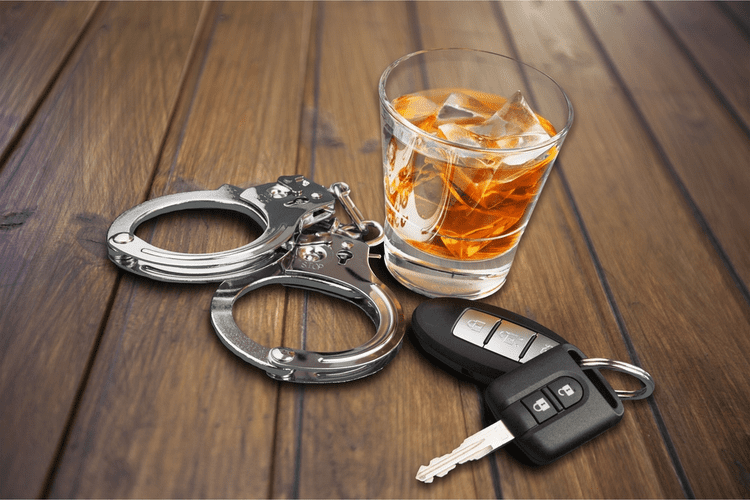Symptoms of Alcohol Withdrawal: Timeline and Signs of Danger
دسته: Sober living
It can be helpful to make a plan ahead of time for how to handle a relapse. For example, some people choose to write a list of reasons why they want to stop drinking alcohol, and revisit the list to remind themselves after a relapse. You may want to speak with a loved one or therapist about a strategy to prevent relapses from happening. Eating nutritious food, exercising, and getting enough sleep can help reduce some withdrawal symptoms, such as mood swings. If don’t have much of an appetite, you may want to take a multivitamin or drink a beverage high in electrolytes, such as a sports drink. If you take prescription medication, continue to take it as directed.

What Does It Mean to Taper or Wean off Alcohol?
- You may also consider joining an online support group to help you feel less alone.
- Support systems, such as family, friends, or professional care, provide the necessary encouragement and oversight.
- For example, if you normally drink 6 glasses of wine each night, you can try reducing that to 5 glasses of wine a night.
- They will also be able to prescribe you medications that can curb your cravings or reduce your withdrawal symptoms.
- Slowly decreasing the amount you drink over time can spare your body from withdrawal symptoms.
Let them know your plan, your progress, and how withdrawals are going for you. As such, there is only limited guidance available about the best ways to taper. If you’d like to reduce your drinking, but aren’t aiming for total abstinence, there are a number of strategies that can help. There are advantages to the 12 step method, and many people experience success with it.
- Anyone wanting to stop using alcohol may benefit from tapering if they first consult with their doctor to ensure they are tapering safely.
- After prolonged alcohol use, your body can come to rely on alcohol for normal functioning, and suddenly going without it can cause potentially dangerous withdrawal symptoms.
- Before you begin an alcohol taper, a little preparation can go a long way, especially when it involves handling your triggers and tracking how much you drink.
- Your doctor may recommend taking supplements to address these deficiencies.
- We can leverage our resources and team to help you reduce and eventually end your alcohol use.
- Studies show support groups play an instrumental role in helping people develop healthy social networks that result in continued sobriety.
Alcohol Withdrawal Timeline
- If the connection that you find in AA groups is something you value, you’ll need to combine TSM with one of the above groups, or an online community.
- Detox doesn’t treat addiction, which is a disease characterized by compulsive behaviors, such as chronic alcohol use.
- If you’re struggling to wean off alcohol, it might be best to seek addiction treatment.
- Likewise if your average consumption is 6 standard drinks per day you can set a taper schedule of 4, 2, 0.
- While the safest way to taper is with professional help in a detox facility, this may not be an option for everyone.
For over 20 years Dr. Umhau was a senior clinical investigator at the National Institute on Alcohol Abuse and Alcoholism of the National Institutes of Health (NIH). Overall, do whatever you can to make yourself as comfortable as possible. If you’re sweating, place a cold towel on your forehead or on the back of your neck. Prepare a playlist of your favorite songs or movies to pass the time. Keep it interesting and varied with sparkling water, virgin cocktails (also known as mocktails), fruit juices, low-fat milk, or kombucha. Remove all alcohol from your home or ask a friend or family member to do it for you.
More on Substance Abuse and Addiction
This article discusses alcohol withdrawal, its symptoms, and potential complications. It also provides an overview of the alcohol withdrawal timeline process and when to discuss your drinking with your healthcare provider. Make no mistake about it, alcohol withdrawal symptoms can be severe, and in some cases fatal. https://cenzure.net/pagescat/5/1100/25/ If you are a daily drinker, a heavy drinker, or a frequent binge drinker, suddenly quitting will likely produce a wide range of uncomfortable symptoms. The Recovery Village Ridgefield medical detox center in Vancouver, WA, is a fully staffed rehab facility designed to help you wean off alcohol in comfort.

If you experience severe withdrawal symptoms while tapering off alcohol, adjust your plan. The goal of tapering is to make the withdrawal process safer and more bearable. These symptoms may start a few hours or a few days after your last drink of alcohol.
This is a highly personal decision, which can be made through self-reflection, and with the support of a medical professional and your peers. If it’s safe for you to quit cold turkey, you may find that cutting alcohol out entirely from the start helps you clearly uphold your boundaries. Or, you may find that quitting all at once is too drastic and decide to start by practicing harm reduction. A popular way to taper off alcohol is to gradually reduce the number of drinks you consume over a period of time. For example, if you normally drink 6 glasses of wine each night, you can try reducing that to 5 glasses of wine a night.

Tapering helps people stop using alcohol and other substances in small and manageable steps. This can help your body adjust, and it can be easier to manage than quitting cold turkey. It’s always http://www.sapkowski.su/modules.php?name=Articles&pa=showarticle&artid=12&page=8 best to speak with a healthcare provider when changing your relationship with alcohol. Every person has unique needs, and tapering off may not be an adequate solution to reduce or stop drinking.
What Is an Alcohol Taper?
This process should be developed with input from healthcare professionals to ensure safety and effectiveness. An evidence-based approach is crucial, considering the individual’s drinking http://www.snowbd.ru/guestbook/%2A/8 history, health status, and potential risks. It can be tempting to just “rip off the Band-Aid” when getting sober, but tapering off alcohol is often much safer—and much less stressful.
